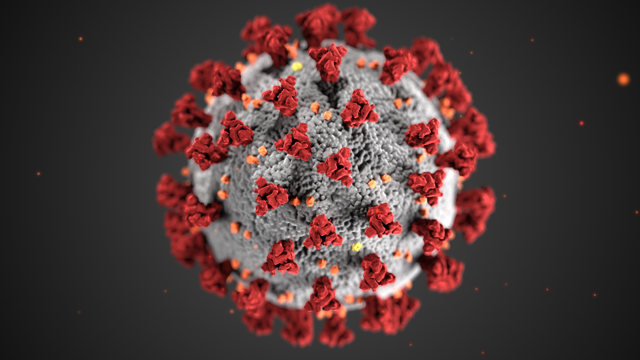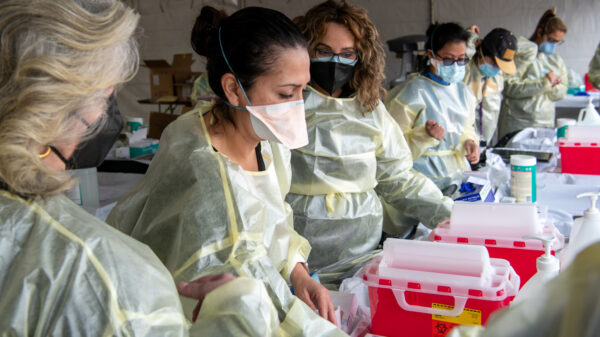At a recent Ethnic Media Services (EMS) briefing, The Center at Sierra Health Foundation discussed its efforts to combat the opioid epidemic and substance abuse crisis in California. The conversation, held on the center’s 10th anniversary, highlighted the innovative approaches of three nonprofit organizations actively involved in prevention and recovery programs.
Kaying Hang, the President of The Center at Sierra Health Foundation, provided an overview of the center’s focus on substance use programs. The center aims to tackle the alarming rates of drug-related overdose fatalities, particularly from fentanyl, in California. They underscored the significance of access to care, quality treatment, and youth prevention in their approach.
The discussion featured statistics from the Center for Disease Control and Prevention (CDC), revealing that over 109,000 lives were lost in California in 2022 due to overdoses, making it the leading cause of death for non-elderly individuals. The historical context of punitive drug response strategies was discussed, with a positive shift highlighted towards prioritizing care over criminalization.
Kaying emphasized The Center at Sierra Health Foundation’s alignment with community advocates, focusing on centering the voices, humanity, and needs of people who use drugs. The center’s approach involves managing grants for the continuum of care around drug use, with a focus on ending opioid overdose deaths, drug education for young people, and supporting wellness for individuals who use drugs.
Harm reduction approaches, non-judgmental care, and access to safer drug use tools were emphasized in the center’s programs. The discussion concluded by emphasizing the importance of community-based organizations and partnerships to provide care options aligned with individuals’ visions for themselves.
The subsequent segments of the discussion will feature insights from three community partners—Mari Perez-Ruiz, Braunz E. Courtney, and Arlene Brown—who will share their approaches to addressing substance abuse in their respective local communities.
Mari Perez-Ruiz, the Executive Director of the Central Valley Empowerment Alliance, discussed the organization’s work in Poplar, Tulare County. The focus was on addressing the impact of fentanyl and other addictive substances in unincorporated areas of the Central Valley. Mari highlighted the challenges faced by rural communities, especially in terms of substance addiction, and shared the Alliance’s efforts to create safe spaces and initiate conversations about drug use.
The discussion also touched on the remarkable efforts of the youth in advocating for their community. The Alliance successfully raised funds for the construction of a community park in Poplar, aiming to provide a safe space and instill pride in the community. Mari addressed concerns about crime linked to cartels and emphasized the importance of building trust within the community.
Arlene Brown, CEO of Crossroads Recovery Center and Skoden Native Harm Reduction Services, provided insights into the harm reduction programs and services in Bishop, Inyo County. Arlene highlighted the unique approach of decolonizing services to make them culturally relevant for Native Americans. The discussion covered various programs, including Naloxone saturation and wellness journeys, with a focus on engaging individuals using drugs rather than stigmatizing them.
Arlene shared the impact of the center’s programs on saving lives, reducing overdose cases, and promoting healing within and beyond the Native American community. The approach of destigmatizing services and making them inclusive for both Native and non-native individuals was emphasized.
Braunz E. Courtney, Executive Director of Hetpack, discussed the organization’s programs, particularly the East Bay MAT Expansion. Hetpack focuses on creating equitable access to Medication Assistance Treatment (MAT) and aims to break down silos by promoting regional collaboration among MAT providers.
Courtney highlighted the importance of harm reduction as a spectrum and the role of substance use navigators with lived and living experiences in providing services. The integrated service model at Hetpack, referred to as a “one-stop shop,” combines clinical and non-clinical settings to address various aspects of individuals’ well-being.
Hetpack’s Overdose Prevention Program (OPED) focuses on identifying individuals at risk for opioid overdose, providing training, and distributing Narcan and Naloxone. The organization also operates a Syringe Service Program (SSP) that offers syringes, safer drug-using kits, and additional services.
Overall, Courtney emphasized Hetpack’s commitment to meeting individuals where they are in their recovery journey and providing comprehensive, integrated services to address various aspects of their well-being.
#SubstanceAbuse #RecoveryInnovation #CommunityResilience #SierraHealthFoundation #HopefulInitiatives #HarmReduction #EmpoweringCommunities #BreakTheStigma #HolisticRecovery #DecolonizingServices









